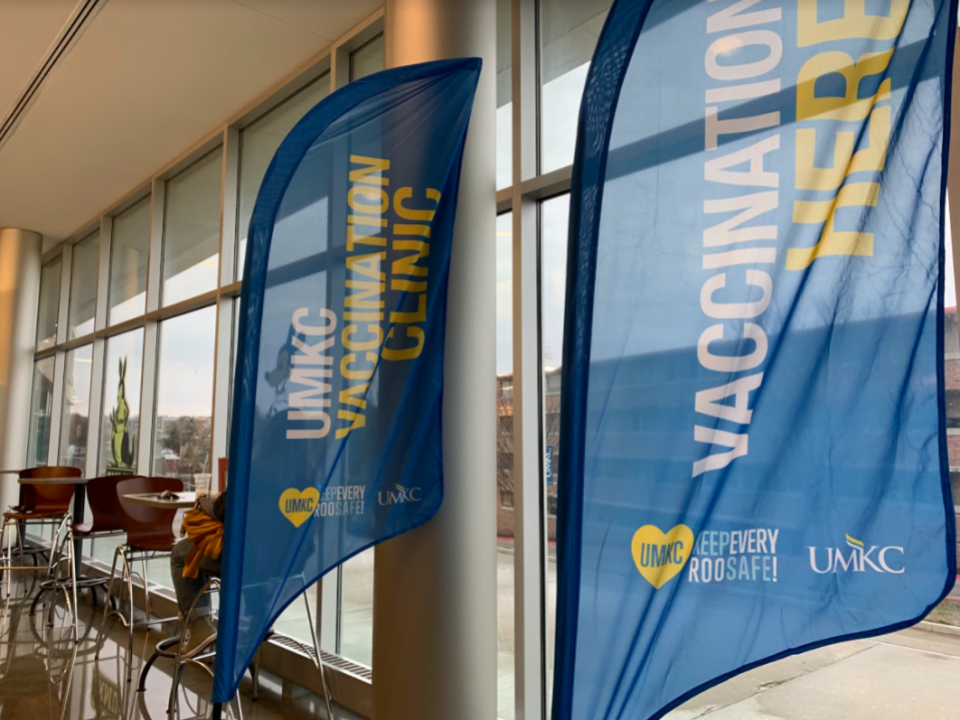UM System President Mun Choi has asked students and faculty to remain vigilant and help mitigate the transmission of the highly contagious omicron variant as the spring semester is underway.
In an email at the beginning of the semester, Choi reinforced common practices for students to prevent the spread of COVID-19 on campus. These practices include:
- Getting vaccinations and booster shots
- Opting for virtual gatherings, meetings and events
- Wearing quality, well-fitting masks
- Staying home when feeling unwell
- Social distancing when possible
The email followed the announcement on Dec.7 to suspend a previous vaccine mandate for all UMKC employees.
John Martellaro, director of media relations for UMKC, reminded students that federal and state governments make these decisions, not individual campuses, and assured them that UMKC will follow all legal requirements.
Martellaro recommended that students and faculty follow the guidelines listed in the email, which are also highly encouraged around campus through signage, posters and email communications.
“These precautions enabled us to successfully return to campus this fall and will be key to our continued success this winter,” Martellaro said.
Julie Banderas, assistant dean in the UMKC Department of Graduate Health Professions in Medicine, said that although she wishes the university could mandate vaccines, she doesn’t believe it’s possible for President Choi or the chancellors to make that decision.
“I understand that being a public university that receives financial support from the state, this impacts their ability to create and enforce mandates,” Banderas said.
Banderas also noted that in the past, mandating vaccines led to legal opposition in appellate courts.
As the semester progresses, Banderas expects to see the current recommendations continue and the ability for on-campus activities to depend on the number of COVID cases.
“So far in January we have needed to be prepared to pivot to online if needed and to spread out as possible,” Banderas said. “Although we have had some online lectures, we have not had to fully switch. It is my hope that the rate of infections will decline and we will be able to carefully plan more in-person events using the right modifications to limit exposure and infections.”
Banderas said she believes more students will receive vaccinations this semester as COVID affects their classroom experience and peers. Just within the first few weeks of the spring semester, UMKC experienced a record number of daily cases.
“Personally, I think the COVID surge in January and the number of students missing classes due to the need to quarantine and isolate as a result of COVID exposures, positive COVID tests and symptoms has prompted students and staff who were not vaccinated to go ahead and get vaccinated,” Banderas said.
As of Feb. 8, UMKC has now reported 195 cases of coronavirus on campus for the spring semester. The spring total has now surpassed 70% of the total number of positive cases in the fall 2021 semester, continuing the trend of unprecedented case numbers.
Although vaccinations are not mandatory, UMKC highly encourages students to utilize the many vaccination resources the university provides to students and faculty. One of these resources is the university’s vaccination clinics in the Student Union.
If students and faculty are experiencing symptoms, such as fever or chills, shortness of breath, fatigue, and loss of taste or smell, the university suggests that they get tested and stay home until symptoms clear. UMKC also provides free testing by appointment.
rrr9v3@mail.umkc.edu








